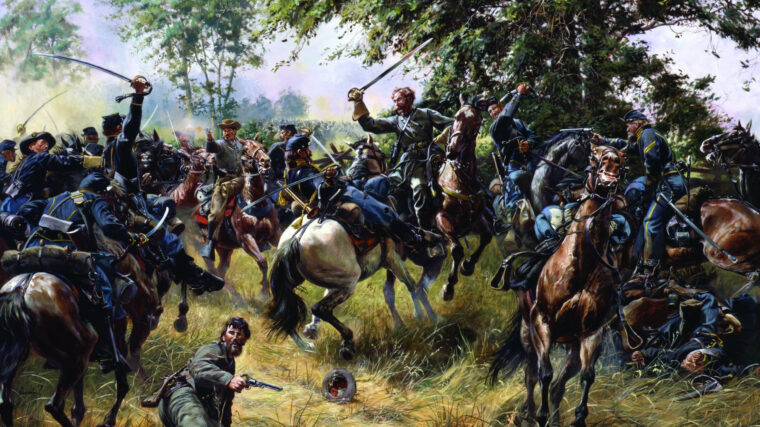
Civil War
“Keep to your Sabers, Men”: J.E.B. Stuart’s Charge at Gettysburg
By Cowan BrewAn angry gloom hung like dust over the 6,000 Confederate cavalrymen trooping up the York Turnpike in the early dawn of July 3, 1863. Read more
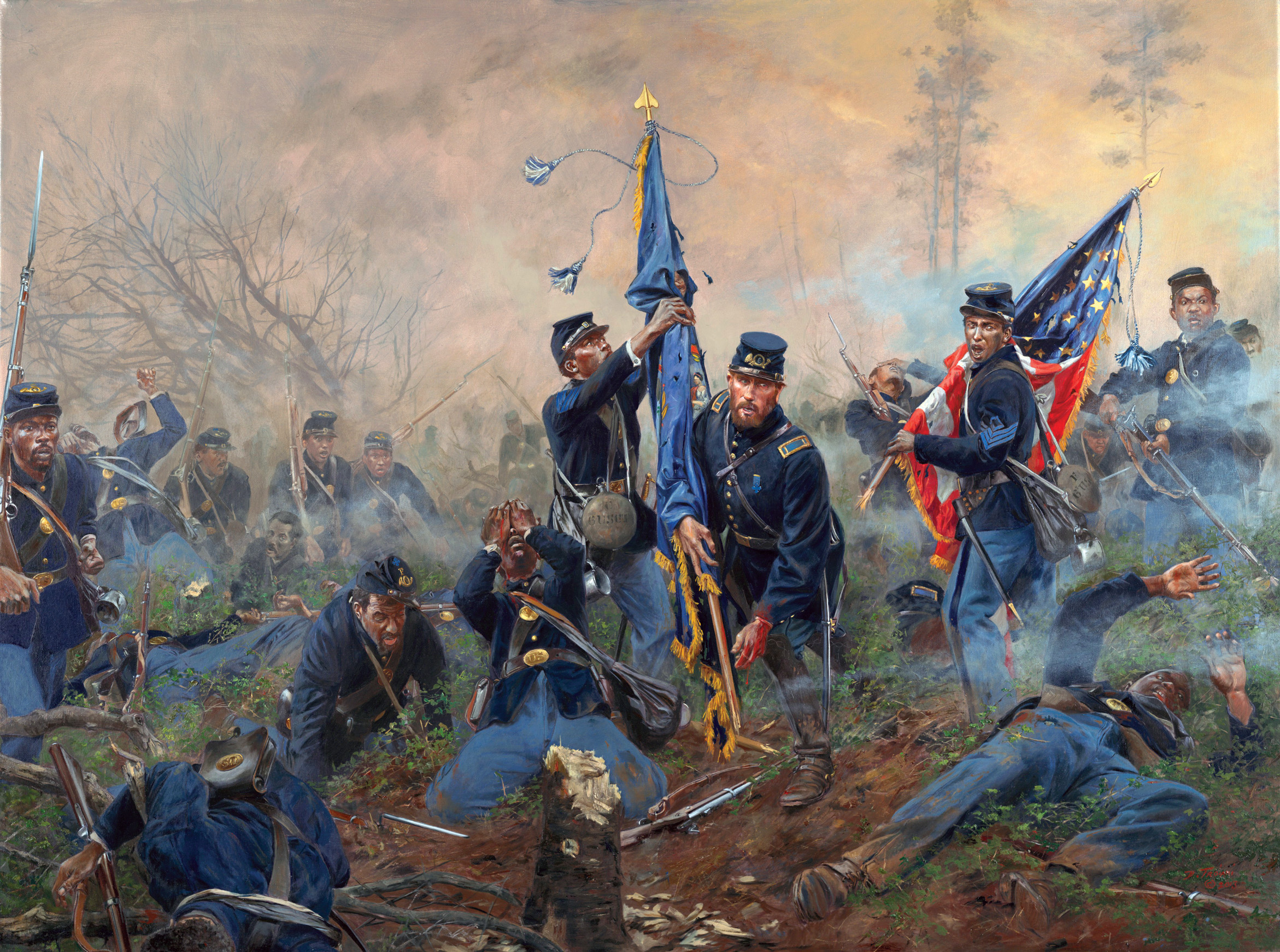
Warfare History Network is your best source for military history online. This is where we bring you our coverage on all aspects of the American Civil War—from the first shots fired at Fort Sumter to Antietam to the surrender of Robert E. Lee at Appomattox. In addition to substantial military coverage, we also examine the political climate of the 1860s and how the war influenced civilian life in the North and South. A trove of Civil War photos, maps, and color illustrations complement our written contributions from a team of established writers, including William Welsh, Pedro Garcia, and acclaimed author-historian Roy Morris Jr.

Civil War
An angry gloom hung like dust over the 6,000 Confederate cavalrymen trooping up the York Turnpike in the early dawn of July 3, 1863. Read more
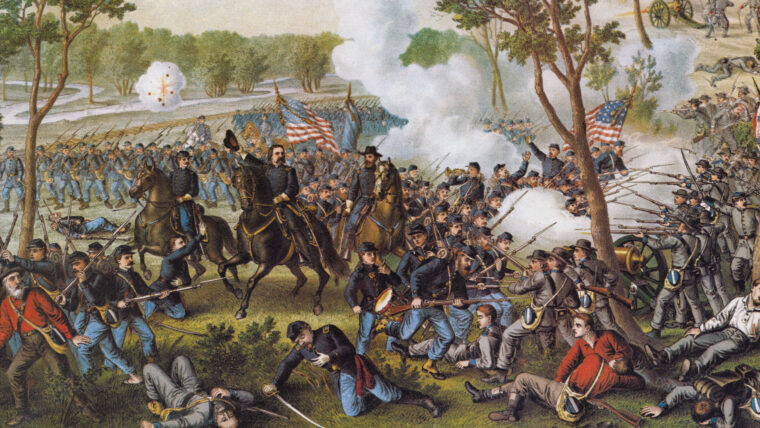
Civil War
During the Civil War, the strategic importance of Vicksburg, Mississippi, was readily apparent to both the Union and the Confederacy. Read more
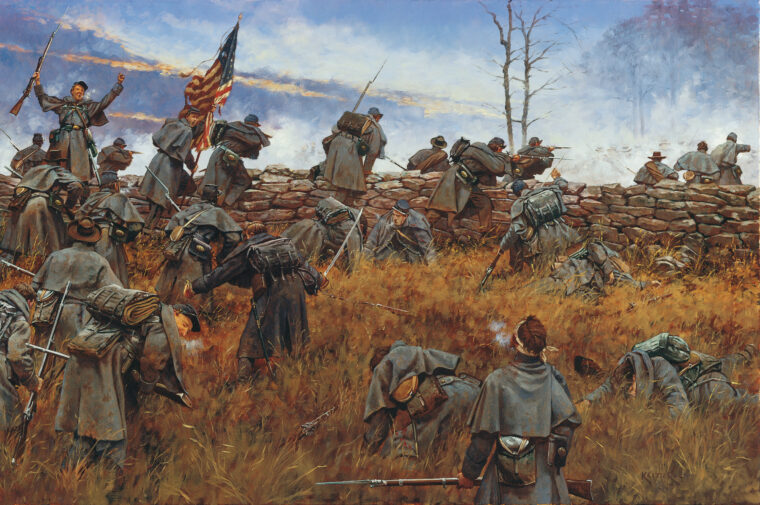
Civil War
Sunday morning, March 23, 1862, was sunny and warm in Virginia’s Shenandoah Valley. Confederate general Thomas J. “Stonewall” Jackson, a devout Christian, did not like to fight on the Lord’s Day. Read more
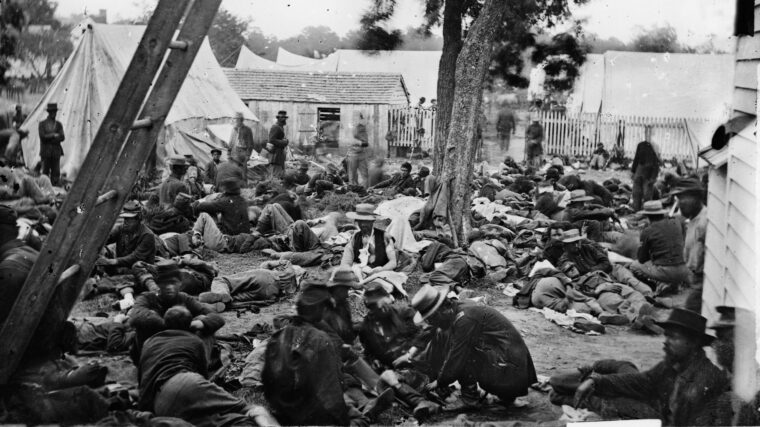
Civil War
Safe behind its ocean barriers, the United States paid scant attention to the wars that raged abroad during the early 19th century, taking little notice of the lessons that might have been learned from the European experience with mass killing. Read more
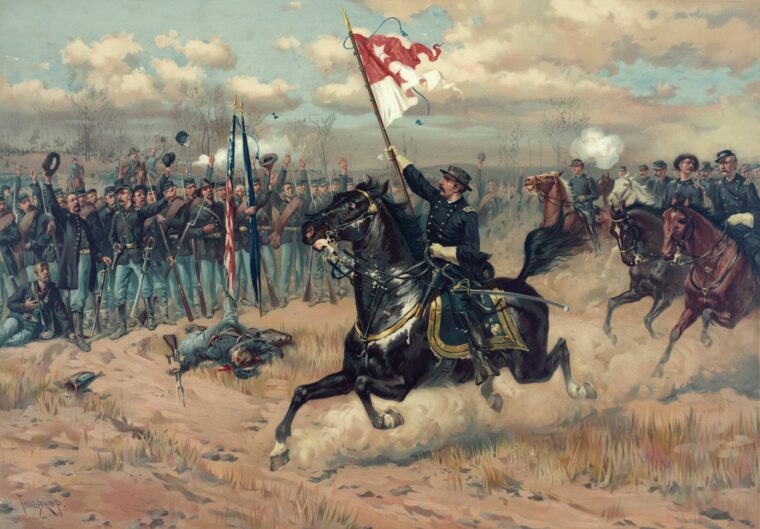
Civil War
Phil Sheridan had a bad feeling. The bantam-sized Union general always trusted his instincts, and now, in mid-October 1864, those instincts were telling him that trouble was brewing back at the front, where his Army of the Shenandoah was encamped near Cedar Creek, Virginia, resting and relaxing after a busy few weeks burning civilian farms and slaughtering thousands of head of livestock from Staunton north to Woodstock. Read more
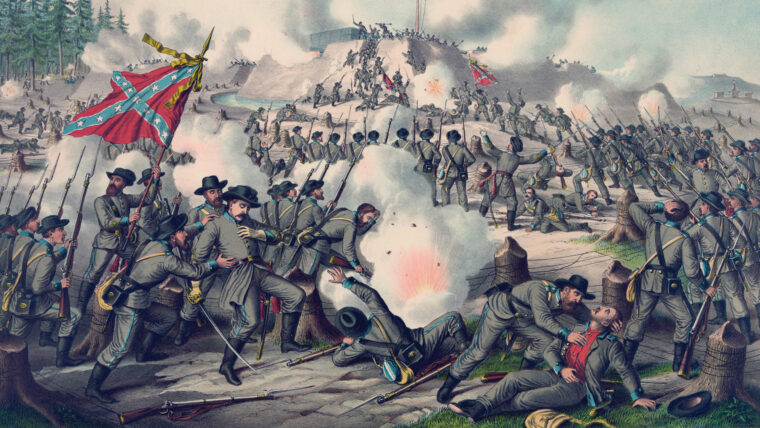
Civil War
After the crushing Union defeat at the Battle of Fredericksburg on December 13, 1862, President Abraham Lincoln relieved Maj. Read more
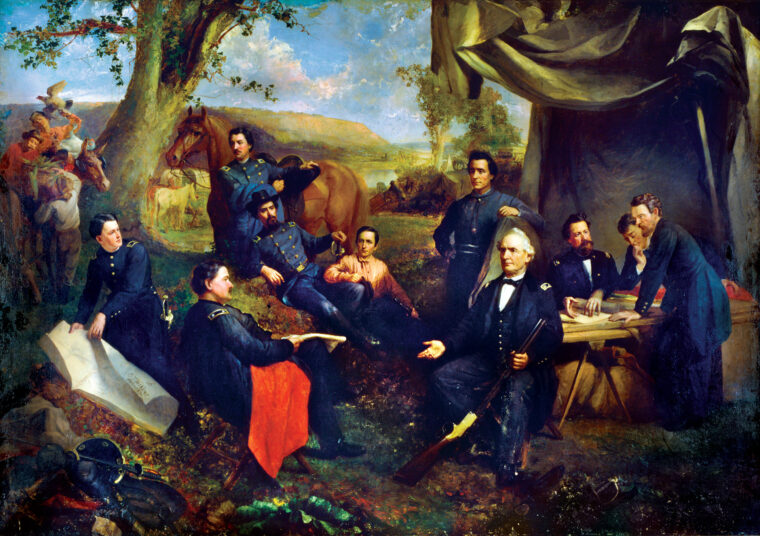
Civil War
When the Civil War erupted, so many of Lisbon, Ohio-born Robert McCook’s large extended family joined the Union Army that the clan became known as the “Fighting McCooks.” Read more
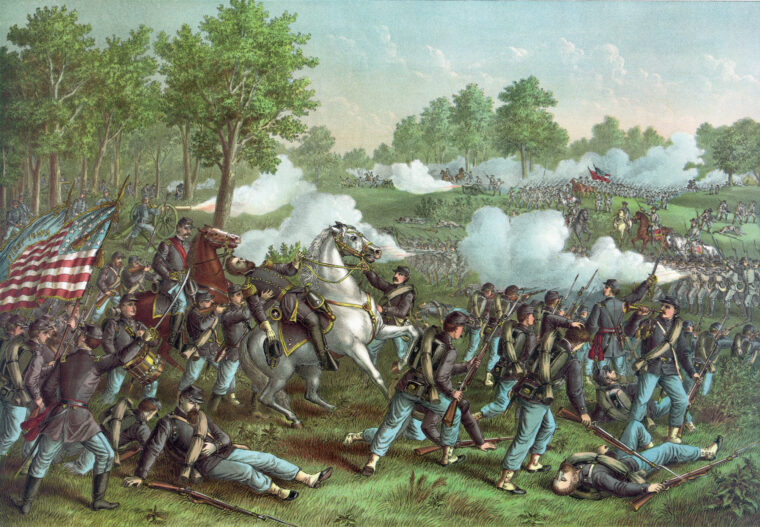
Civil War
At the beginning of 1861, Missouri was in turmoil. A slave state since its inception in 1820, Missouri had grown increasingly tied to urban industry. Read more
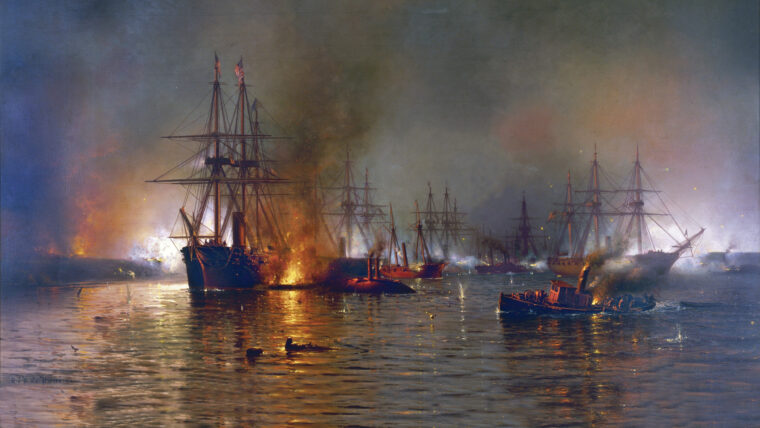
Civil War
From the deck of the Hartford, Flag-Officer David Farragut watched his signal officer in the rigging above him. Read more
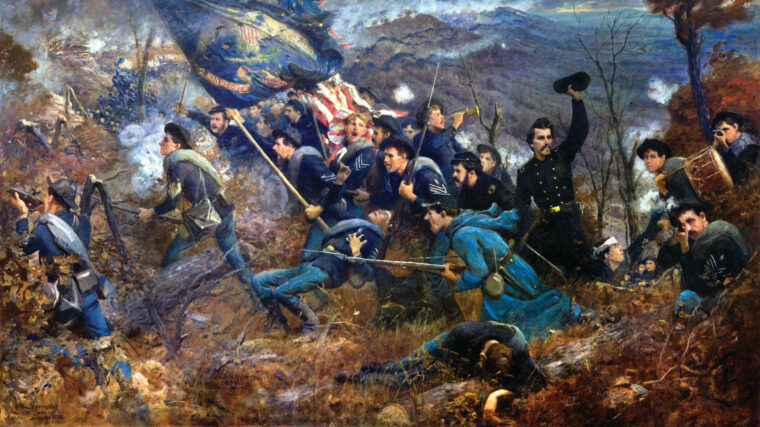
Civil War
It was the afternoon of September 20, 1863, and the right wing of the Union Army of the Cumberland was in full flight at the battle of Chickamauga in northern Georgia. Read more
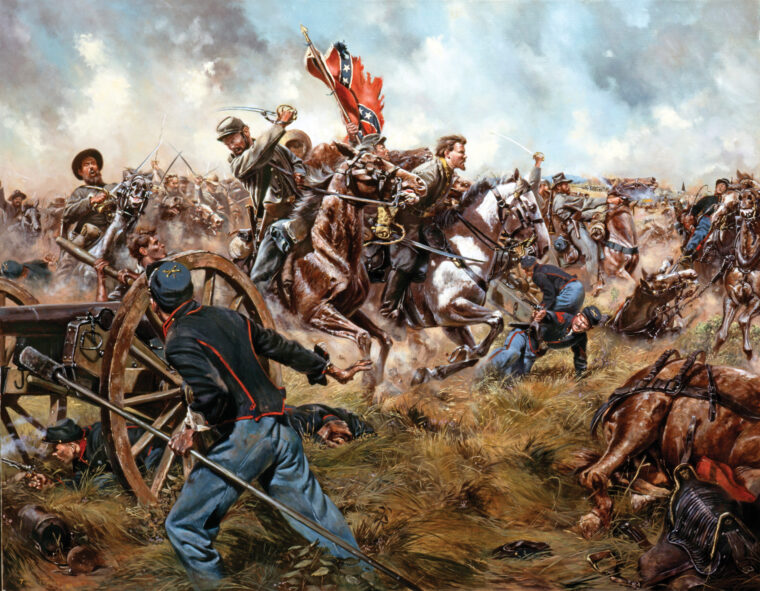
Civil War
Major Henry B. McClellan should have had a quiet afternoon. At dawn on June 9, 1863, Union cavalry had launched a surprise attack on Maj. Read more
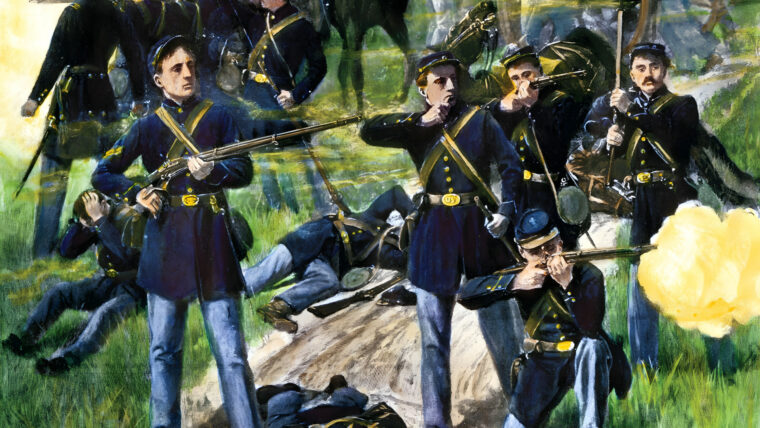
Civil War
The series of battles that constituted the Confederate offensive against the Union army on the eastern outskirts of Richmond, Virginia, in summer 1862 would thrust a number of Union officers into the limelight. Read more
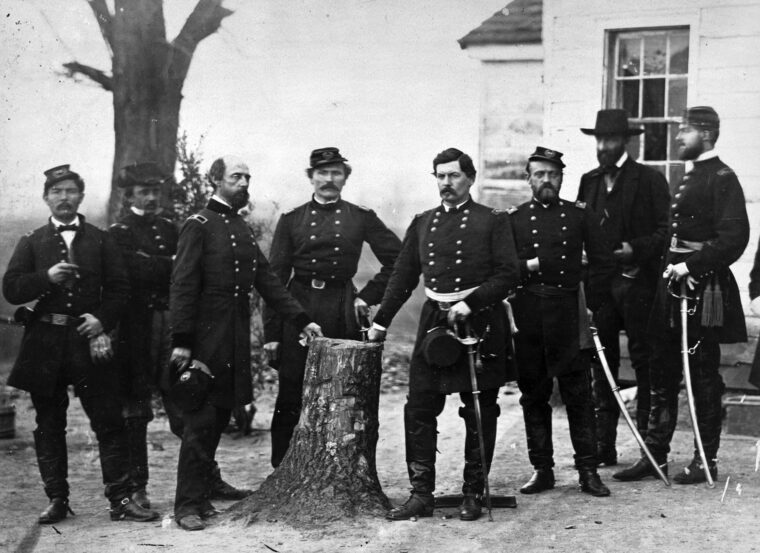
Civil War
After an almost uninterrupted, four-month-long string of Union successes beginning in early 1862, followed by the advance of a 100,000-man enemy army to the eastern outskirts of its capital at Richmond, Virginia, the Confederacy suddenly found itself in a life-or-death struggle for its very survival. Read more
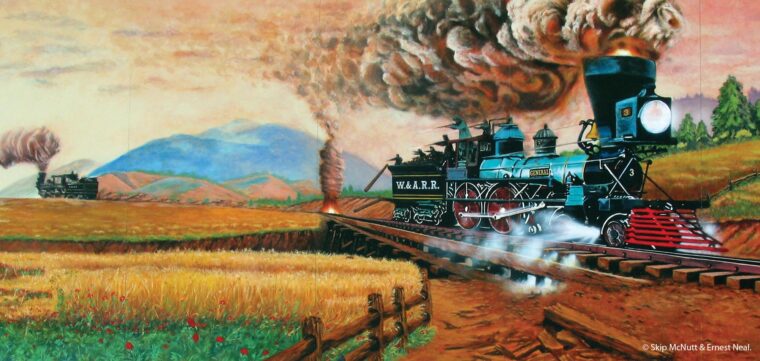
Civil War
By early April 1862, the Civil War was already closing in on the South, but the trains still ran on time. Read more
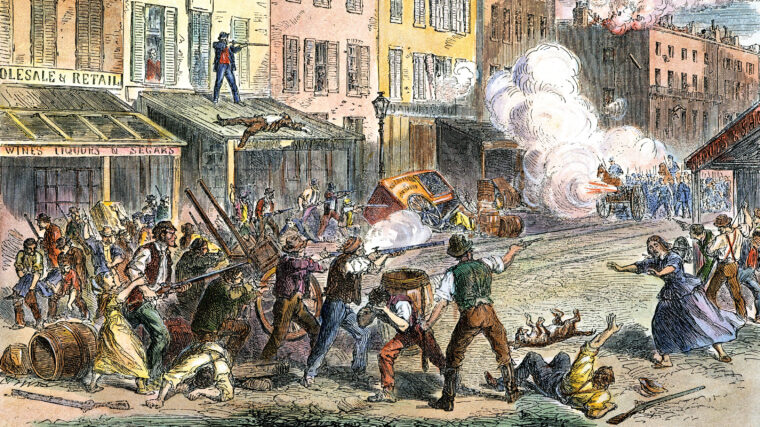
Civil War
For four breathlessly hot days in mid-July 1863, New York City became the northernmost battleground of the Civil War. Read more
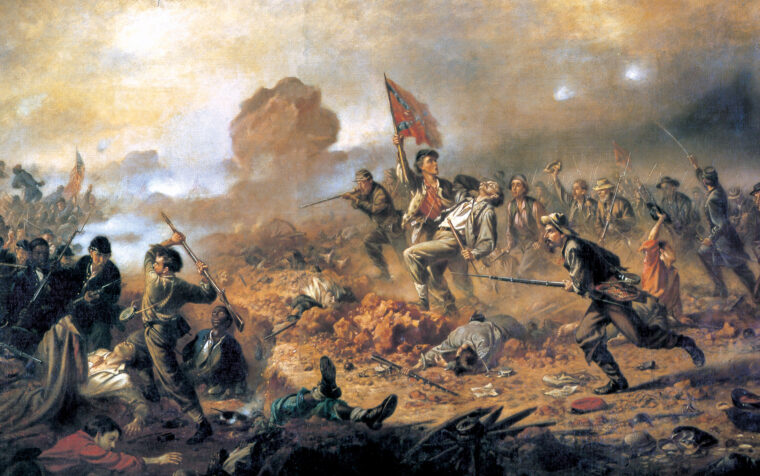
Civil War
It was just after 3 am on Saturday, July 30, 1864. A month of relative quiet along a two-mile stretch of Union and Confederate trench lines immediately east of Petersburg, Virginia, was about to come to an explosive end. Read more
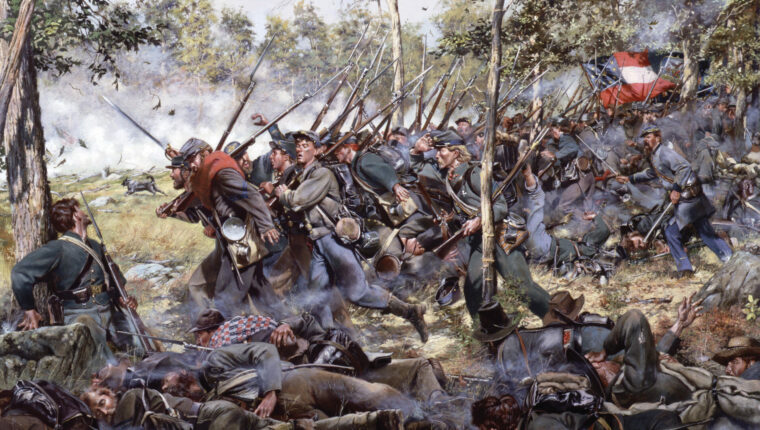
Civil War
Rifle flashes erupted at intervals on the base of the slope. The flashes gave away the location of the confederate troops advancing in large numbers in the darkness of the night of July 2, 1863, on the eastern side of Culp’s Hill southeast of the town of Gettysburg. Read more
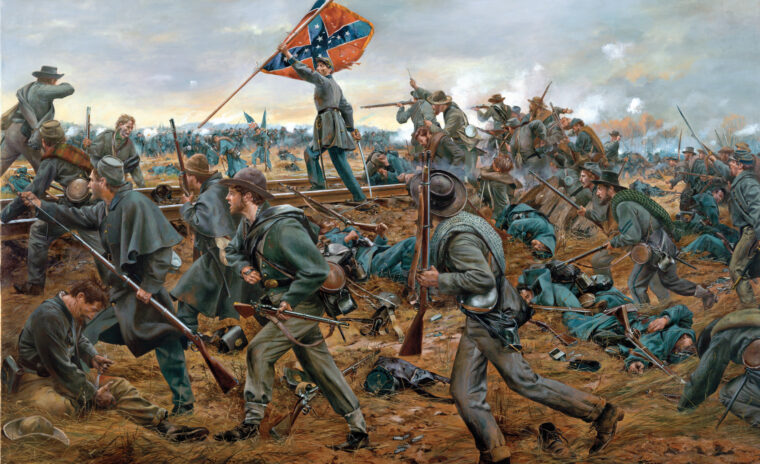
Civil War
By David A. Norris
Brig. Gen. George Gordon Meade’s division spent three hours bombarded by Confederate guns on December 13, 1862. Read more
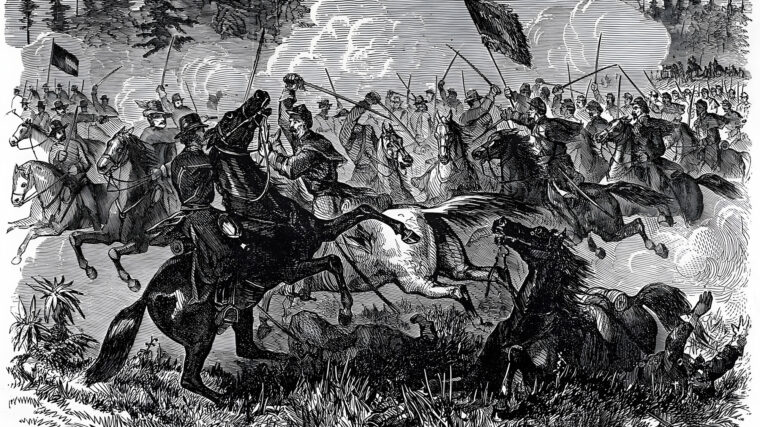
Civil War
Napoleon Alexandre Duffie was born on May 1, 1833, in Paris, France. His father, Jean August Duffie, was a prosperous sugar refiner and mayor of the village of La Ferte-sous-Jouarre. Read more
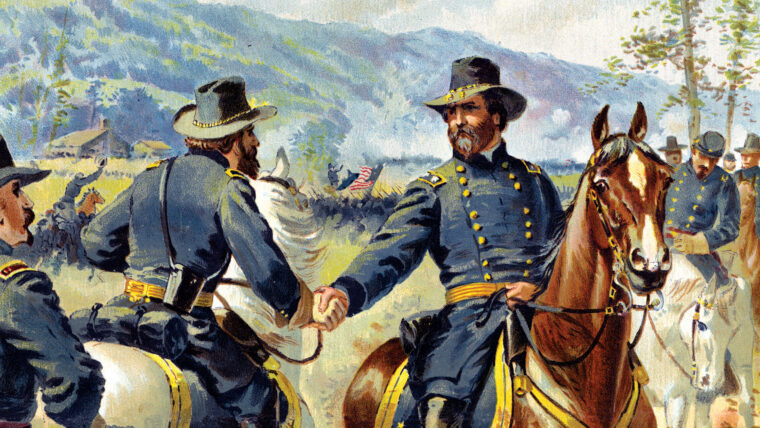
Civil War
Amid the fog of powder smoke in the north-Georgia forest, the frayed remnants of the Union’s Army of the Cumberland faced determined Confederate troops who sensed an impending victory. Read more